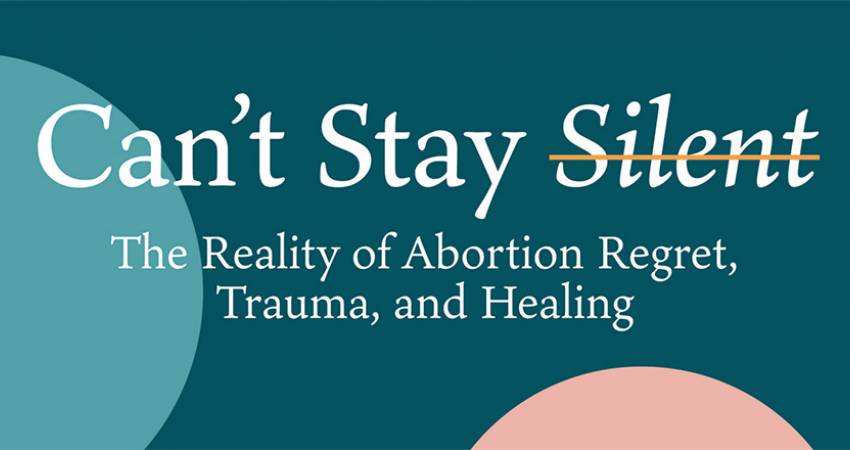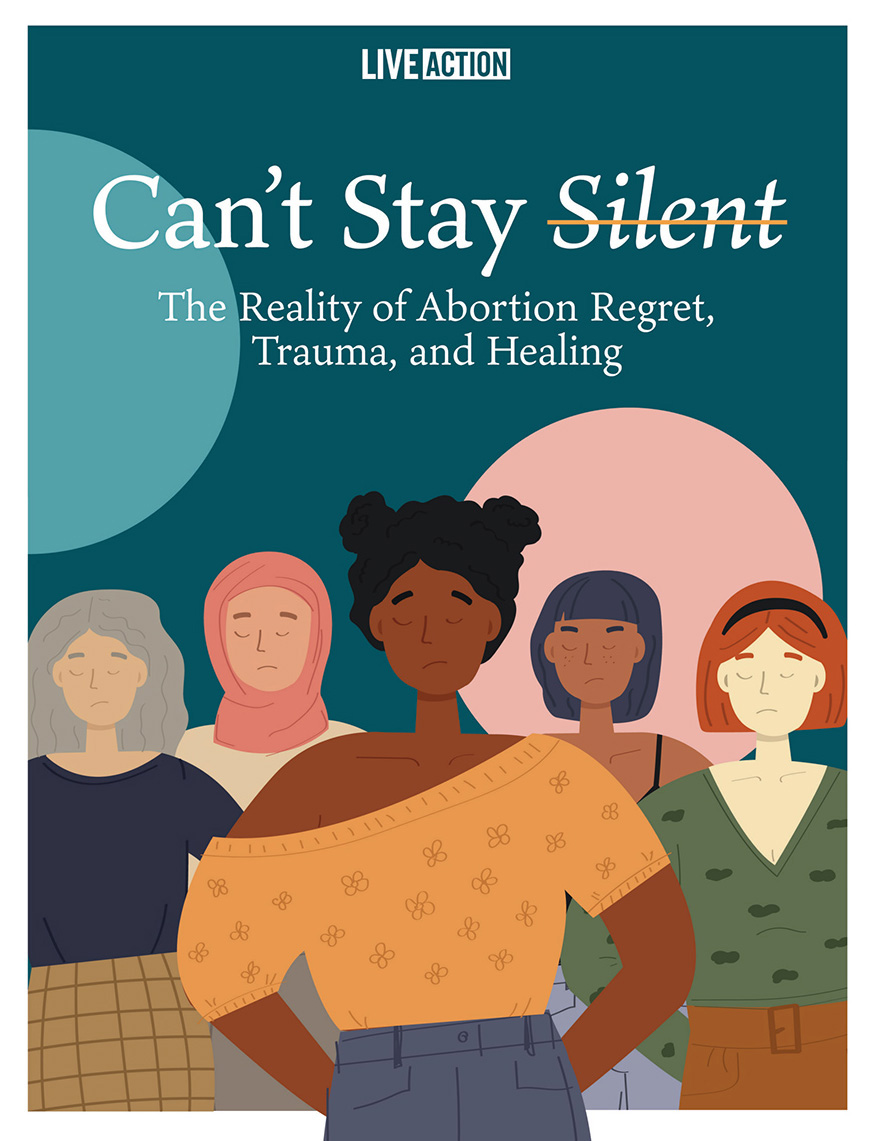
“It’s not what the industry tells you it is” – Women tell the stories of their traumatic experiences with abortion and regret
A common misunderstanding about the pro-life movement and those who oppose abortion is that we are trying to control women and “limit women’s reproductive freedom”, or that we simply do not care about the mother or her wellbeing.
However, this is not the truth. Abortion often hurts and scars women, and those who have had abortions are sometimes a second victim in addition to the unborn child. A study published in May of last year shows that a majority of women experienced feelings of regret, sadness or guilt after having an abortion.
The study indicates that a majority (60 percent) of women reported they would have carried to term if they had received more support from others and/or had more financial security.
In June 2022, Roe V. Wade was overturned in the US. For almost 50 years up until then, there had been a federal protection of this appalling violence against defenceless children. However, since then, the pro-abortion movement has greatly increased the amount of misleading language, propaganda, and misinformation it uses. Those who are pro-abortion also commonly use euphemisms such as "women's reproductive health" and catchphrases like "abortion is healthcare" to hide the brutality of abortion..
Live Action released a report in 2022 called ‘Can’t Stay Silent’ regarding the reality of abortion regret. The report deals with the “physical, psychological, social, and spiritual consequences experienced by post-abortive individuals” and discusses the “institutional bias” which is typically in favour of false narratives spread by the abortion industry regarding regret and trauma after abortion, and how this bias isolates and silences the many women who have suffered post-abortion. The report concludes with a list of resources, groups, and organisations that are devoted to post-abortive healing and a call to action to support these resources.

The abortion I had when I was just 19 really has ruined the rest of my life. Once upon a time I thought it might get better over time and maybe I might heal. I have not healed at all. It has been 15 years and I am as sad and depress[ed] and despondent about the entire situation as I have ever been.”
said Becky, a woman who has shared her abortion story as part of the Can’t Stay Silent project.
Jill, another woman who had an abortion and is experiencing abortion regret, also shared her story:
I had an abortion when I was 19 years old. I remember that day like it was yesterday. I cried the whole way there and the whole time I was there. I think I was about 10 weeks pregnant because they made me wait a month from the time I found out I was pregnant because of my low body weight. I remember going in to see the counsellor before my procedure and I was still hysterical. She looked at me and said, 'It's nothing.'' I continued to cry into the procedure room and one of the assistants screamed at me, 'Stop crying or we can't do the procedure.' It was literally one of the worst days of my life.
Today, I know that it is not 'nothing.' I feel a deep sense of pain and regret over my decision. I am now in my second year of law school and plan to use my law degree to join the fight to protect both women and their babies from the lies, harm, and destruction of abortion.”
These stories, along with many others, show the incredibly harmful negative emotional effects that abortion can have on women, but there are also physical effects. Abortion can be physically harmful in several ways that affect women’s health later in life.
For instances of chemical abortion, which is a two step process, women are given two types of pill. The first is mifepristone, which blocks the pregnancy hormone progesterone. The second pill (typically taken 1-2 days after mifepristone) is misoprostol. Misoprostol is known to cause heavy bleeding, severe cramping and contractions. In some cases, women will need to be hospitalised due to the long enduring and heavy bleeding experienced after the Misoprostol. This has tragically led to a number of deaths.
For cases of surgical abortions, the main risks involved include perforation/laceration of the uterus or cervix, and damage to the intestines, bladder, and/or nearby blood vessels. However, there are also the risks of haemorrhage, infection, and, occasionally, death.
Abortion is a violent and invasive procedure. As a result, there is a very real chance that the mother could sustain long-term physical harm. Abortionists themselves have admitted time and time again to the procedure's brutality and fatality. In a disturbing statement from a pro abortion book released in 2022, abortionist Marc Heller stated “I experience a mixture of horror and relief when I crush the skull of a second-trimester fetus, knowing that I will be able to safely complete the procedure, but also I will see the squashed face and bulging eyes of the baby I just killed.”
That sense of horror is also shared by women. “After 46 years it is still a vivid memory,lying on a cold table in a heartless room. A room where my child died as well as my inner self” said Carol, about the long lasting emotional trauma she carries after her abortion.
The abortion industry and those who are in support of it have a track record of mistreating patients and downplaying the harmful effects of the procedure. This industry has made billions in revenue over the last ten years and millions of dollars annually from the murder of unborn children.
“The culture told me abortion was no big deal. Why could I not get on with my life in peace and happiness? Where was the freedom that was to have accompanied the choice of abortion?” said Angelina, who shared her abortion story with the Silent No More awareness campaign.
These women who have bravely come forward to tell the harrowing stories of their individual experiences with abortion have given a voice to those whose perspectives and voices have been silenced by abortion. They discuss the painful realities of abortion and the suffering it has brought to countless people.
Report: https://www.cantstaysilent.com...
Some of the personal stories
Featured
- Abortion coercion has arrived in Ireland – the NWC are silent
- Review of at-home abortions 'needed after coercion case'
- French Govt to remind 29-year-olds of biological clock
- Huge factor in decline in primary school numbers ignored
- Germany Denies Promoting Abortion Abroad—While Funding Pro-Abortion NGOs
- Govt don’t oppose Coppinger abortion bill at 1st stage
- March for Life: Vance, the White House, and a Divided Pro-Life Movement
- Paris’ Annual March for Life Puts Euthanasia in the Spotlight
- Britain’s seemingly limitless abortion rate
- The importance of the work carried out by Every Life Counts
- Puerto Rico officially recognizes unborn children as ‘natural persons’
- Assisted suicide laws stalled by “complex” legal issues
- Yes, that hideous celebration of 300 abortions is real
- White Crosses Memorial: Dungarvan once again pays its respects to our aborted babies
- Josiah: Abortion Survivor
- Rally for Life 2025


























